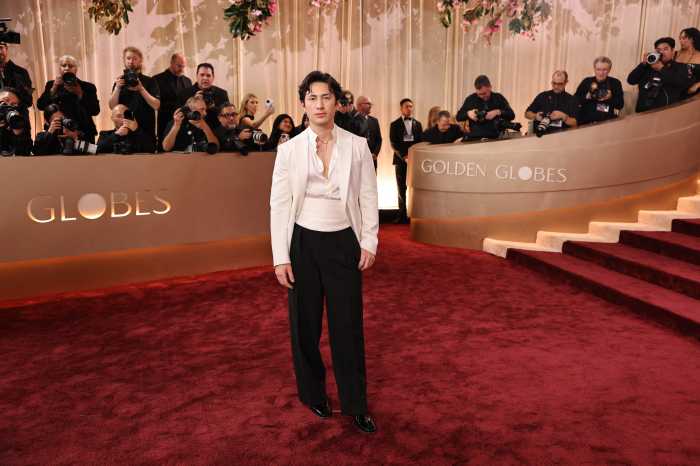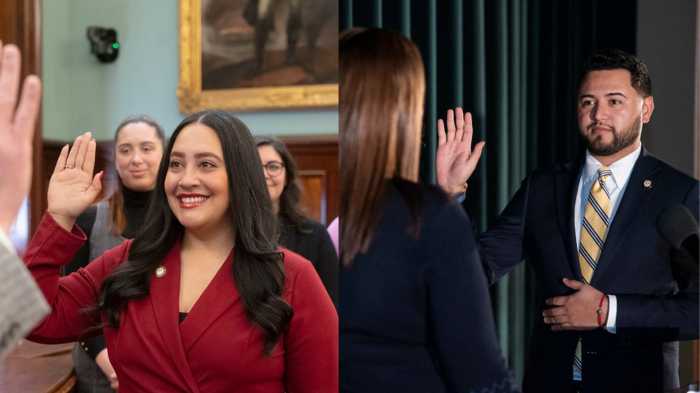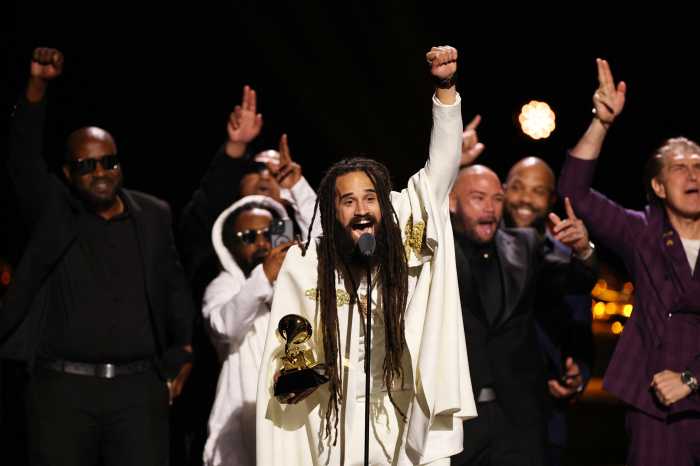Will Ferrell is a wealthy, famous actor, but his affable doofus persona enables him to come across as an ordinary middle-aged man. Even his fondness for dad jokes makes him seem relatable. The first words of “Will & Harper” are directed towards him by director Josh Greenbaum, as he sits down and prepares a statement. He talks about a friend who became the head writer at “SNL” the same year he began working there and stood behind much of his career. (In a decision that’s bound to be controversial, he deadnames her while talking about this period of her life.) But the film’s cross-cutting soon gives Harper Steele the chance to speak for herself. In 2020, she decided to transition to living publicly as a woman. She sent out letters to her friends, including Ferrell, about her gender.
The two went on a road trip from New York to Los Angeles, bypassing big cities in favor of rural Walmarts (where Steele proves to be a connoisseur of regional potato chip variations), bars (including one with a Confederate flag and “f**k Biden” sign) and diners. Prior to transitioning, Harper frequently drove alone across the country, even hitchhiking, but she no longer feels safe doing so. Josh Greenbaum filmed this documentary during this journey.
Many comedians of Ferrell’s generation have turned out to be reactionary transphobes, basing their acts on turning trans people’s lives into a punchline while crying about getting canceled. But he proves to be genuinely curious about his friend’s experiences. Will and Harper spend a great deal of time talking about her transition while driving. Undeniably, “Will & Harper” was made with the intention of Will serving a stand-in for cis men who don’t know much about trans women’s lives but are open-minded and curious. Critic Matt Zoller Seitz described it as “pretty unabashedly a teaching tool aimed at a country where maybe a third of the electorate not only has deep animosity towards transgender people but is being fed hate rhetoric about them daily.”
Imagine a diary film shot by a trans woman herself driving alone in these same areas, and you’d have a much different work. Yet as Seitz also pointed out, “Will & Harper” is a new sort of buddy comedy, picking up from the fictional ones Ferrell has starred in. Ferrell’s silly schtick persists off the movie set: He dresses up as Sherlock Holmes to go dining and puts on a hilariously unconvincing wig and false mustache to disguise himself in Las Vegas. Sections of the film feel scripted. It acknowledges its own existence as a demonstration of the power of celebrity, even if its cameos from Ferrell’s colleagues at “SNL” are a bit gratuitous.
Harper may have become wealthy through her work as a writer, but she did so by putting her words in actors’ mouths, not stepping in the limelight herself. There’s no reason anyone who encounters her in a public setting would know who she is, while Will is constantly recognized in public. (Ironically, this documentary may propel her into a far more visible position.)
In its early scenes, it risks turning into a cis savior narrative, with Will chaperoning Harper into spaces that might not be so welcoming without him. Despite her interest in sports, she feels uncomfortable attending a basketball game (where she meets Iowa’s governor, only to learn about his support for transphobic laws later.) Everywhere she goes, she makes small talk about her transition. Even with the power of a production company behind her, she worries about her safety. After Will and Harper are photographed eating in public at a restaurant in Texas, he receives tweets calling him a “satanic Illuminati pedophile” and declaring “f**k liberal Will Ferrell.” He’s able to scoff at them, but such attitudes kept her in the closet for almost 60 years.
The closer the two get to the coast, the more the comic bits drop away, as Harper confronts what life as a woman in her 60s might look like. The film’s tonal shifts are extremely sensitive, keeping things fairly light without ignoring the gravity of Harper’s transition or the risks she may face. It always treats Will, not Harper, as the butt of its jokes rather than having her put on a self-deprecating act. “Will & Harper” may be meant as a lesson for its spectators, offering Ferrell as a role model for middle-aged cis men in place of Joe Rogan and Dave Chappelle, but it’s also a very touching depiction of a friendship.
“Will & Harper” | Directed by Josh Greenbaum | Netflix



































